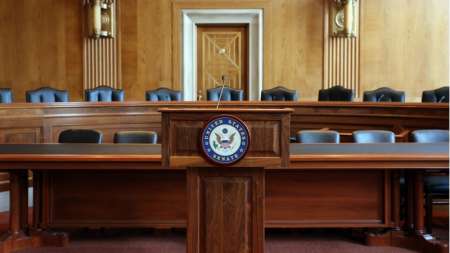Sen. Edward Markey, D-Mass., and Rep. Ted Lieu, D-Calif., on Oct. 22 reintroduced legislation in the Senate and House aimed at creating a voluntary system to certify cybersecurity protections for internet of things (IoT) devices. […]
The Senate Commerce, Science, and Transportation Committee approved by voice vote today S. 151 – the Telephone Robocall Abuse Criminal Enforcement and Deterrence (TRACED) Act, as amended. […]
Sens. Edward Markey, D-Mass., and Mike Lee, R-Utah, issued a statement on Tuesday urging the Department of Homeland Security (DHS) to “pause” activities to spread the use of facial recognition technologies and develop policy that will further inform U.S. citizens about the technology and what happens to the data that it generates. […]
Sens. Edward Markey, D-Mass., and Josh Hawley, R-Mo., on Tuesday introduced legislation that would update the Children’s Online Privacy Protection Act (COPPA), which became law in 1998 and regulates the ability of website and online service providers to collect information about users under the age of 13. […]
Three senators asked President Trump in an Oct. 11 letter to provide information on whether the U.S. government operates any equipment using motherboards supplied by Super Micro Computer, Inc., which was the subject of a recent article by Bloomberg Businessweek reporting that Super Micro equipment had chips secretly implanted in the equipment that enabled backdoor data transmissions to China. Super Micro has strongly denied the claims of that report. Sens. Edward Markey, D-Mass., Sherrod Brown, D-Ohio, and Catherine Cortez Masto, D-Nev., also asked what steps the U.S. has taken to ensure that Federal government equipment does not contain illicit chips, and whether the White House knows other instances of the Chinese government infiltrating technology made for end users in the U.S. They asked for a reply by Nov. 2. […]
Three Senate Democrats asked Federal Trade Commission (FTC) Chairman Joseph Simons in an Oct. 10 letter to open an investigation into Google’s disclosure earlier this week that it discovered and patched in March a vulnerability in its Google+ social media platform that may have exposed profile data on up to 500,000 accounts, but did not inform users of the vulnerability in a timely way. […]
The Senate Commerce, Science, and Transportation Committee heard testimony today detailing the workings of data privacy laws in Europe and California–specifically the European Union’s General Data Protection Regulation (GDPR) and the California Consumer Privacy Act (CCPA)–amid a growing groundswell for Congress to work on a national data privacy law for the U.S. […]







